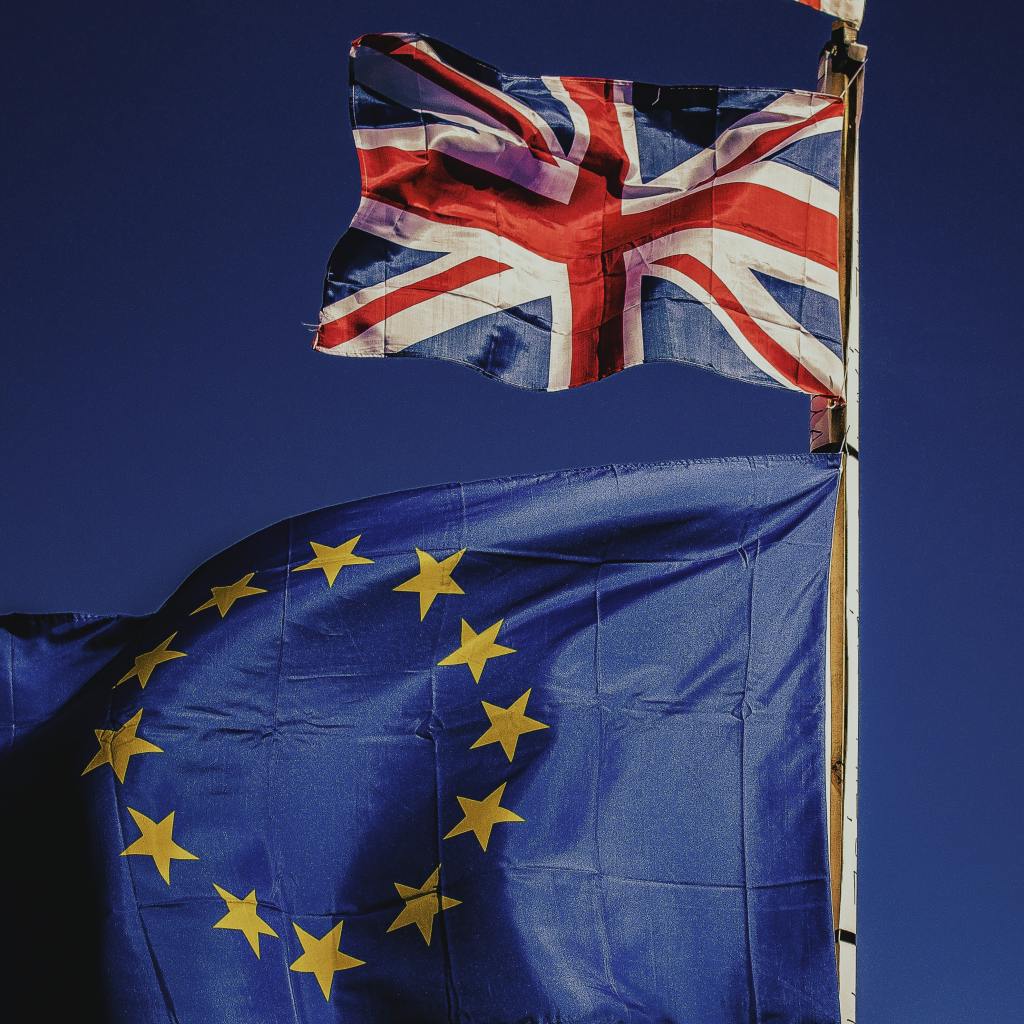 In a new EI Working Paper titled ‘Brexit and the Re-Making of British Foreign Policy’, Nicholas Wright analyses the challenges Brexit will pose to British foreign policy-makers and institutions, the future of UK-EU relations, and the impact of Brexit on UK engagement with the multilateral system. The paper also shows how the UK government can mitigate the risk of a significant loss of international influence. In this blog entry, Dr Wright highlights the key findings of the paper.
In a new EI Working Paper titled ‘Brexit and the Re-Making of British Foreign Policy’, Nicholas Wright analyses the challenges Brexit will pose to British foreign policy-makers and institutions, the future of UK-EU relations, and the impact of Brexit on UK engagement with the multilateral system. The paper also shows how the UK government can mitigate the risk of a significant loss of international influence. In this blog entry, Dr Wright highlights the key findings of the paper.
Since the end of the Second World War, the UK has been a multilateral power par excellence, directly contributing to the construction and expansion of many of the most important institutions of international governance, and championing a rules-based international system. In the 2015 National Security Strategy, for example, the maintenance of this system was identified as a core British national interest, contributing to the UK’s capacity to ‘punch above its weight’ in international affairs.
However, although Brexit entails the UK’s departure from a major component of this system, the consequences for British foreign policy remain under-examined in public debates. A number of challenges need to be addressed.
#1 – The Brexit Negotiations
First, there is the task of completing the Brexit negotiations. This involves reaching an agreement on the terms of withdrawal (the ‘divorce’) and then on the nature of the new, post-Brexit EU-UK relationship, including the basis on which trade between the two will be conducted.
Hugely complex in nature, these negotiations are also increasingly time-sensitive with the two year time-frame provided for by Article 50 meaning a final UK exit at the end of March 2019. Even with considerable goodwill and effort on both sides, there remains a real possibility the negotiations will not be completed in this narrow window meaning that, without an agreed extension, there is the potential for a ‘no deal’ scenario. This would become even more likely in the event the talks break down acrimoniously.
The consequences for UK foreign policy would be significant: any failure in negotiations would make EU-UK relations very difficult, at least in the short-term, whilst also potentially damaging the UK’s reputation and influence internationally. The challenge for the FCO is how to manage this risk whilst the negotiation process itself is led by a separate department, DExEU.
#2 – Being ‘outside the room’
The second challenge lies in the consequences for the UK of no longer being a member of the Common Foreign and Security Policy (CFSP), the EU’s foreign policy-making environment – i.e. of ‘being outside the room’.
As one of Europe’s two biggest military powers, as well as being a nuclear power and a permanent member of the UN Security Council, the UK has brought considerable weight and expertise to the EU’s foreign and security policy capacities. It has played a major role in developing the structures and institutions of European foreign policy co-operation, having been one of the driving forces behind the CFSP and its crisis management arm, the Common Security and Defence Policy.
These, in turn, have become important elements in the UK’s own foreign policy-making, underpinning the establishment of strong relationships with its European partners, improving and institutionalising co-operation between the EU and NATO, and providing a valuable multiplier effect for how the UK engages with the wider world. They have also provided the foundation for the collective responses to Iran’s nuclear programme and Russian action in the Crimea and Ukraine.
Both sides have an obvious common interest in maintaining the stability and security of Europe. Moreover, given that the UK’s departure has the potential to damage the effectiveness and capacities of both sides, they have a clear and immediate interest in developing the closest possible foreign, security and defence policy co-operation post Brexit.
#3 – The UK’s international reputation
At the wider, international level, the risks from Brexit lie in the potential damage to the UK’s reputation and credibility as a responsible, active member of the international community.
Having invested so heavily in the multilateralism that underpins the current international system, there is a clear risk Brexit will be interpreted as part of a process of UK disengagement. This is particularly problematic when Brexit is set in the context of longer term reductions in the resources the UK has been willing to commit to its international presence in recent years, notably in diplomacy and the military.
A UK perceived as being less engaged will enjoy less international influence and be less able to protect and promote its interests. This would be especially problematic if key partners and allies, most notably the United States, started to question its strategic value or relevance.
Allied to this is a risk that the legitimacy of the UK may increasingly be challenged in international institutions, for example in the UN Security Council. In recent years the EU has emerged as a powerful and influential voice in UN discussions, with EU member states including the UK co-operating effectively as a diplomatic bloc. Whilst structurally the UK’s place in such institutions cannot be challenged – it is a veto-wielding member of the UNSC – much of the power and influence that flow from such institutions rests on their credibility: anything that undermines this therefore also undermines the ability of the UK to benefit from the magnifying effect they bestow.
The UK cannot afford to have the legitimacy of its position questioned or challenged, particularly by powerful emerging states that are not permanent members of the UNSC. Sustaining the broader multilateral system is therefore a key British interest.
How to mitigate these risks
There are a number of important steps that the UK can take:
Increasing resources – the Foreign and Commonwealth Office needs a sustained increase in its budget over the coming years to expand its policy expertise in London and diplomatic capacity internationally, particularly in Europe where the bilateral network will need to mitigate the UK’s impending absence from EU FSP decision-making and its consequent loss of influence over outputs.
UK-EU relations – regardless of the outcome of the Brexit negotiations, the EU and its member states will remain essential partners and allies of the UK given their shared security and defence concerns, and the many areas of foreign policy where they have common interests.
Establishing institutional mechanisms to facilitate their ongoing co-operation and engagement as swiftly as possible will therefore be essential. This could include alignment with and participation in elements of the EU’s foreign and security policy machinery, including the CSDP and the recently launched Permanent Structured Cooperation in defence (PESCO). The approach taken by states such as Norway and Serbia shows the feasibility of non-members co-operating closely with the EU in foreign and security policy.
Multilateral activism – it is in the UK’s interest that, post-Brexit, the other multilateral structures which are so important to its foreign policy are reinforced. Two important examples are the United Nations and NATO. The UK needs to send a clear and unambiguous signal of its commitment to these institutions and their ongoing relevance for the international system, including taking stronger leadership roles in NATO and the UN Security Council and active engagement in and support for initiatives to improve and strengthen their capacities.
In this light it is encouraging to see the contribution the UK is making to NATO’s enhanced Forward Presence deployments in the Baltic States in response to Russian actions in the region. In the UN, meanwhile, it could make a greater commitment to UN peace-keeping capacities, something it has pulled back from in recent years.
Post-Brexit, international perceptions of the UK are likely to be framed in terms of engagement and disengagement. If the UK wishes to mitigate the impact of Brexit on its capacity to exercise international influence, it must re-commit to a full and active role in support of the multilateral institutions that are so central to this influence.
In part, this will come down to the resources it is prepared to make available both domestically and internationally, and there is an entirely legitimate domestic discussion to be had about whether, in times of austerity, the UK can realistically make such commitments.
But establishing a clear, focused post-Brexit foreign policy that seeks to ensure the UK can exercise the greatest degree of influence in pursuit of its international interests also comes down to leadership and political will. The government therefore needs to provide a clearer vision for Britain’s post-Brexit foreign policy and its objectives, as well as a clear sense of how to get there.
Brexit will involve the biggest shake-up in how the UK has engaged with the international system in over 40 years. How it is managed will profoundly affect the outcomes of UK foreign policy for at least the next 40.
Dr Nicholas Wright (@NickWrightYAPJ) is a Teaching Fellow in EU Politics in the UCL Department of Political Science.
Note: The views expressed in this post are those of the author, and not of the UCL European Institute, nor of UCL.





Leave a comment